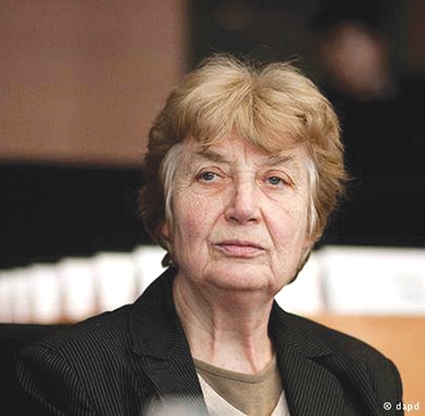The Council of Religions as Mediator between Religious Groups
GEORGIA TODAY recently reported on the European Commission against Racism and Intolerance’s (ECRI) critical assessment on Georgia over alleged discrimination towards religious minorities and the LGBT community. This time, we offer our readers an exclusive interview with one of the main experts standing behind said report, Ms. Barbara John, an esteemed scholar and a bureau member of the ECRI. We asked Ms. John to shed more light on some of the more complex rhetoric of the ECRI report.
When saying “discrimination against religious minorities and LGBT are on the rise,” where’s the comparison made? Compared to Georgia of the past? Before the government change? Compared with the rest of Europe or the South Caucasus region..?
The ECRI never makes comparative judgments about countries within the Council of Europe. After the government change, the ECRI took positive note of improvements in legislation against discrimination, hate speech, and violence against minorities. But legal changes do not necessarily entail swift changes in the behavior and attitudes of the people. But with new legal rules, police and prosecutors have better instruments to pursue cases. And if the consciousness for those cases rises, more discrimination cases are registered and put in the public spotlight. That is good.
What is the time-scale of the recommendations that the report is giving to Georgian authorities? And more importantly, is the timescale realistic, given the general attitude in the country towards these issues?
The interim recommendations should be met within two years after the publication of the report. All other recommendations will be followed up after five years when the next country-by-country visit starts.
How do you see the role of the Georgian Church in this process? The State has employed the Church as a mediator in these disputes. While the performance was far from admirable, it at least forked out a temporary truce in each case. What other actor do you think can garner enough trust from Georgian society to replace the Chuch’s role in the short-term?
As you can read in the report – page 27 – there exists a close relationship between national and Georgian Orthodox identity. Such a still-powerful historic relationship often leads to mistrust, if not discrimination, or even hostility towards minority religions as Muslim, Jehovah’s Witnesses or Armenians. This is the case in Georgia and therefore one should look for a religious neutral and independent organization such as the Council of Religions to act as a mediator between the different religious groups, as the ECRI recommended.
Vazha Tavberidze












